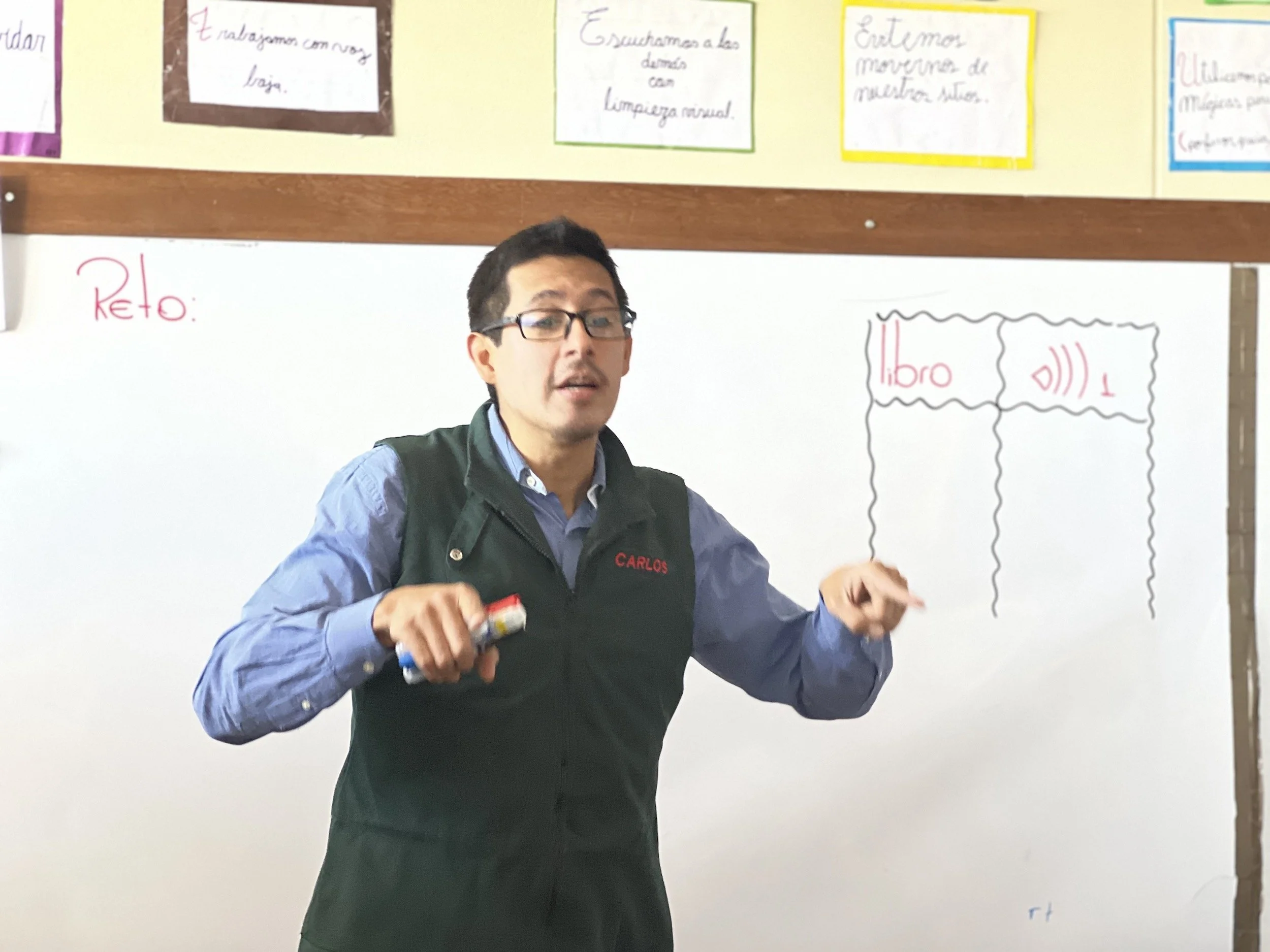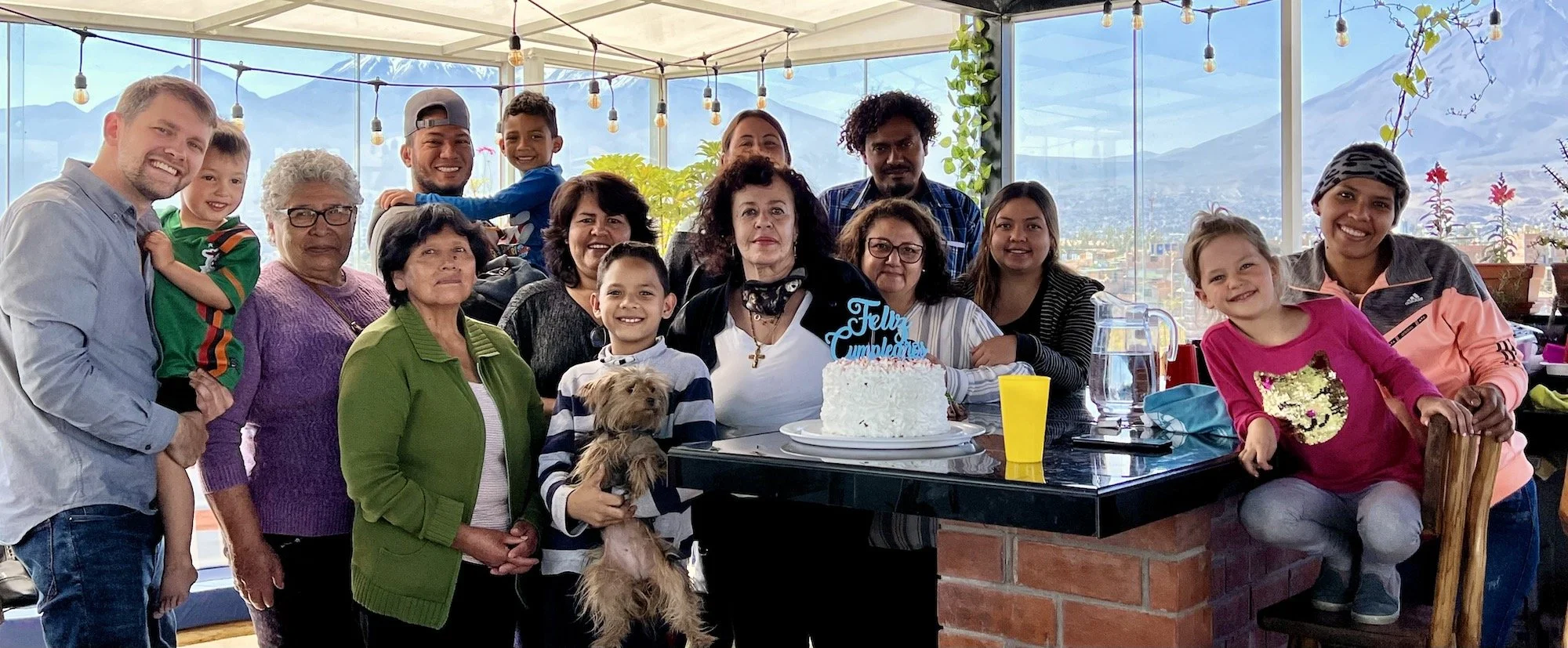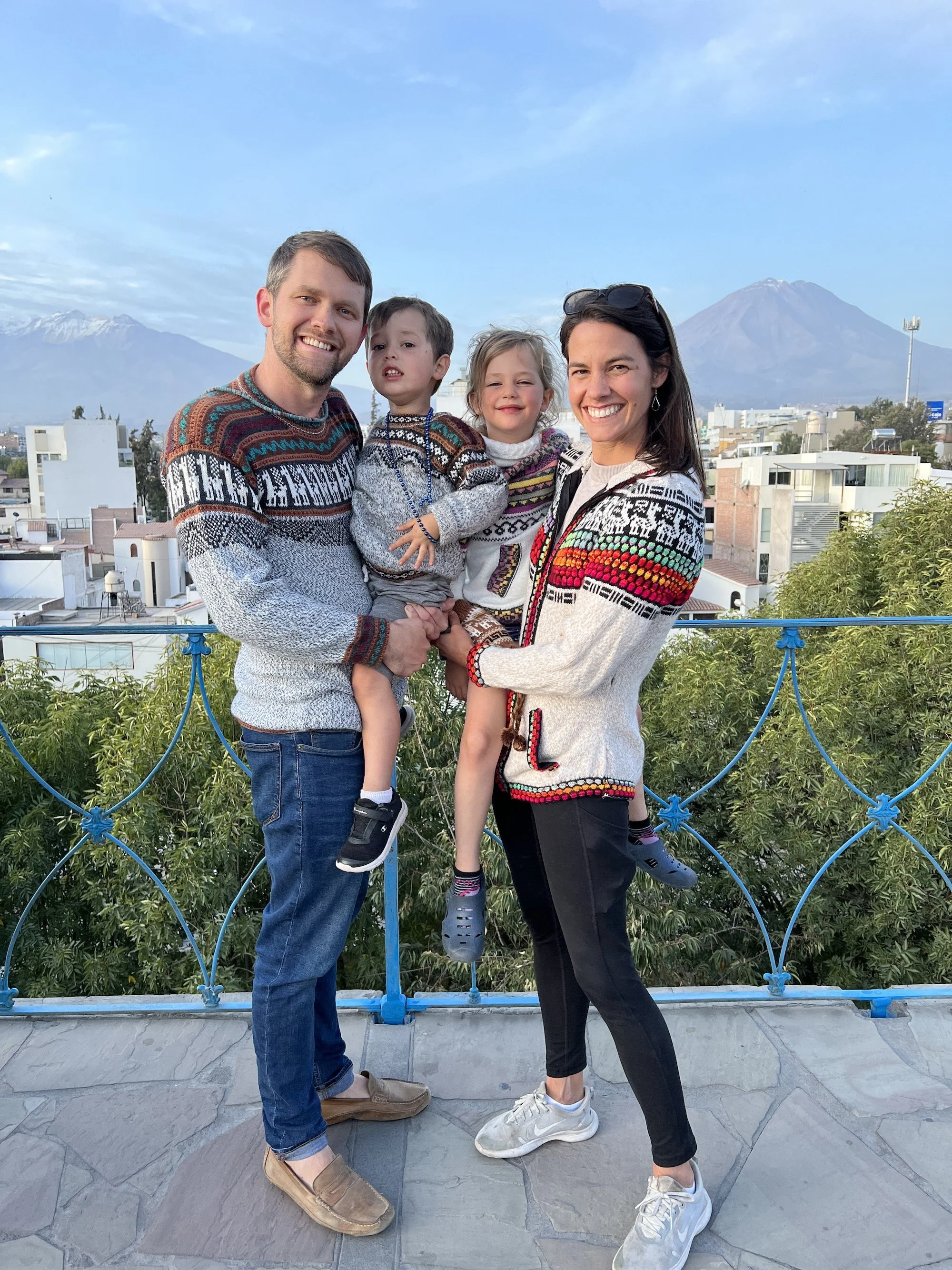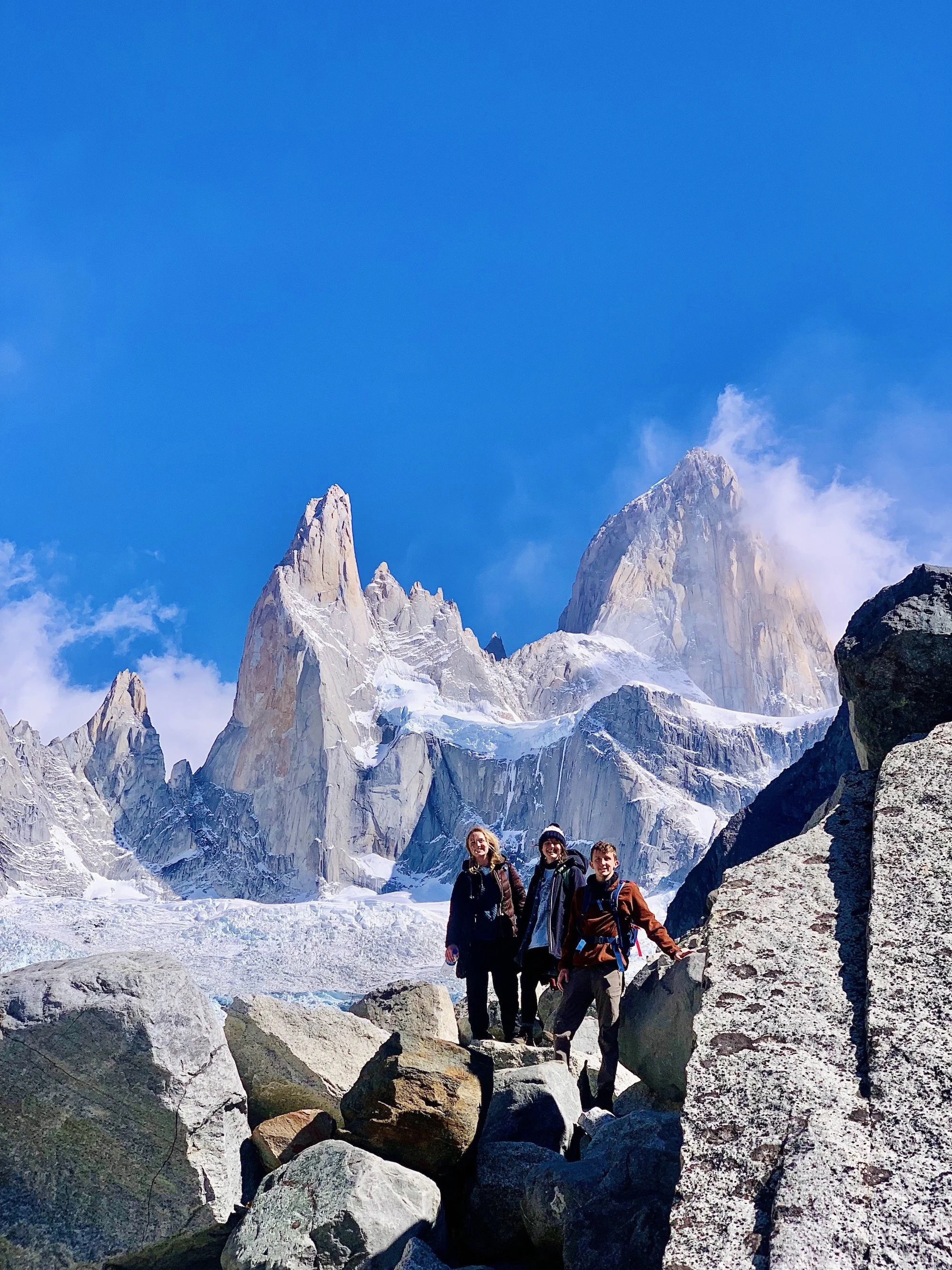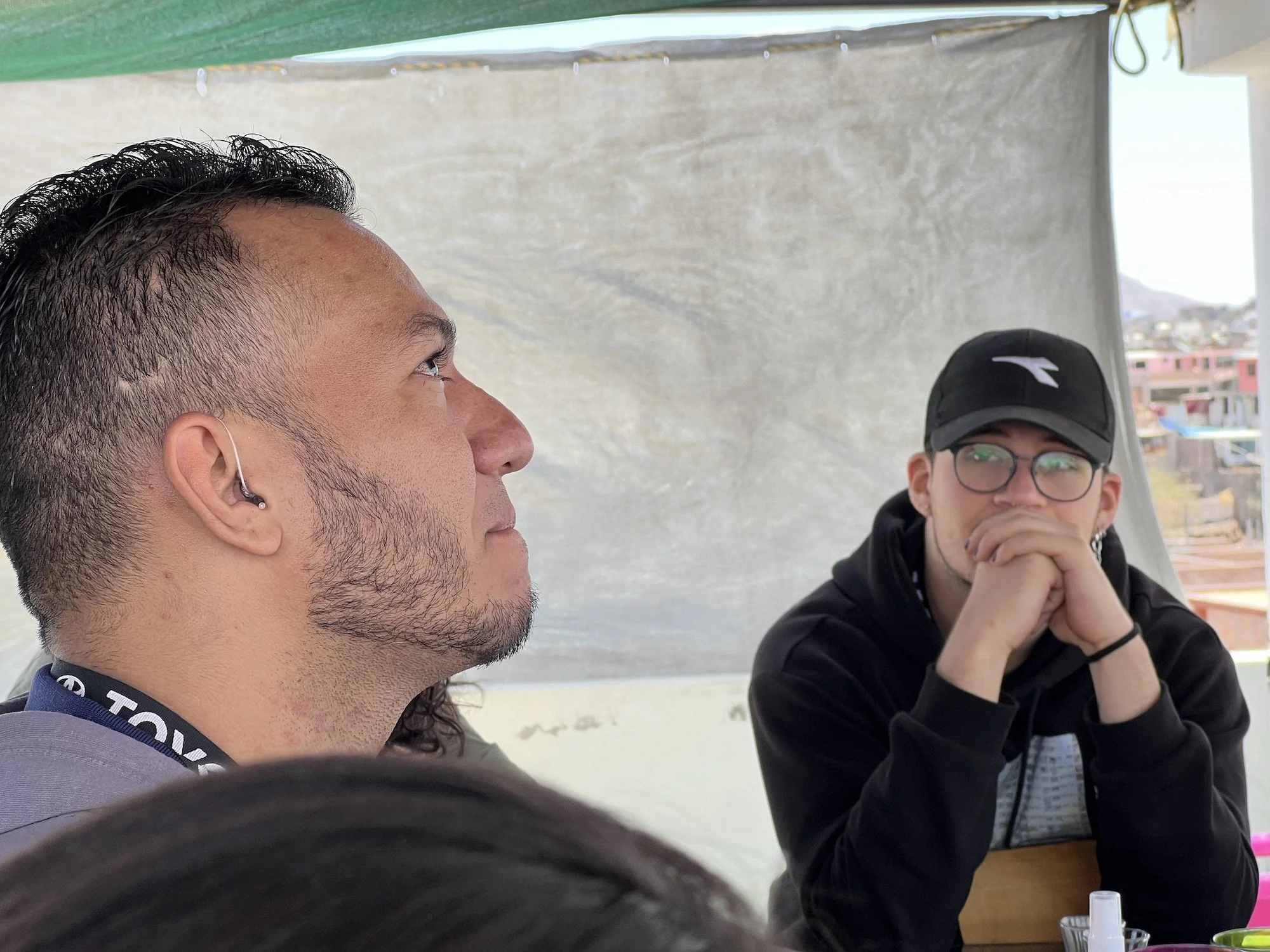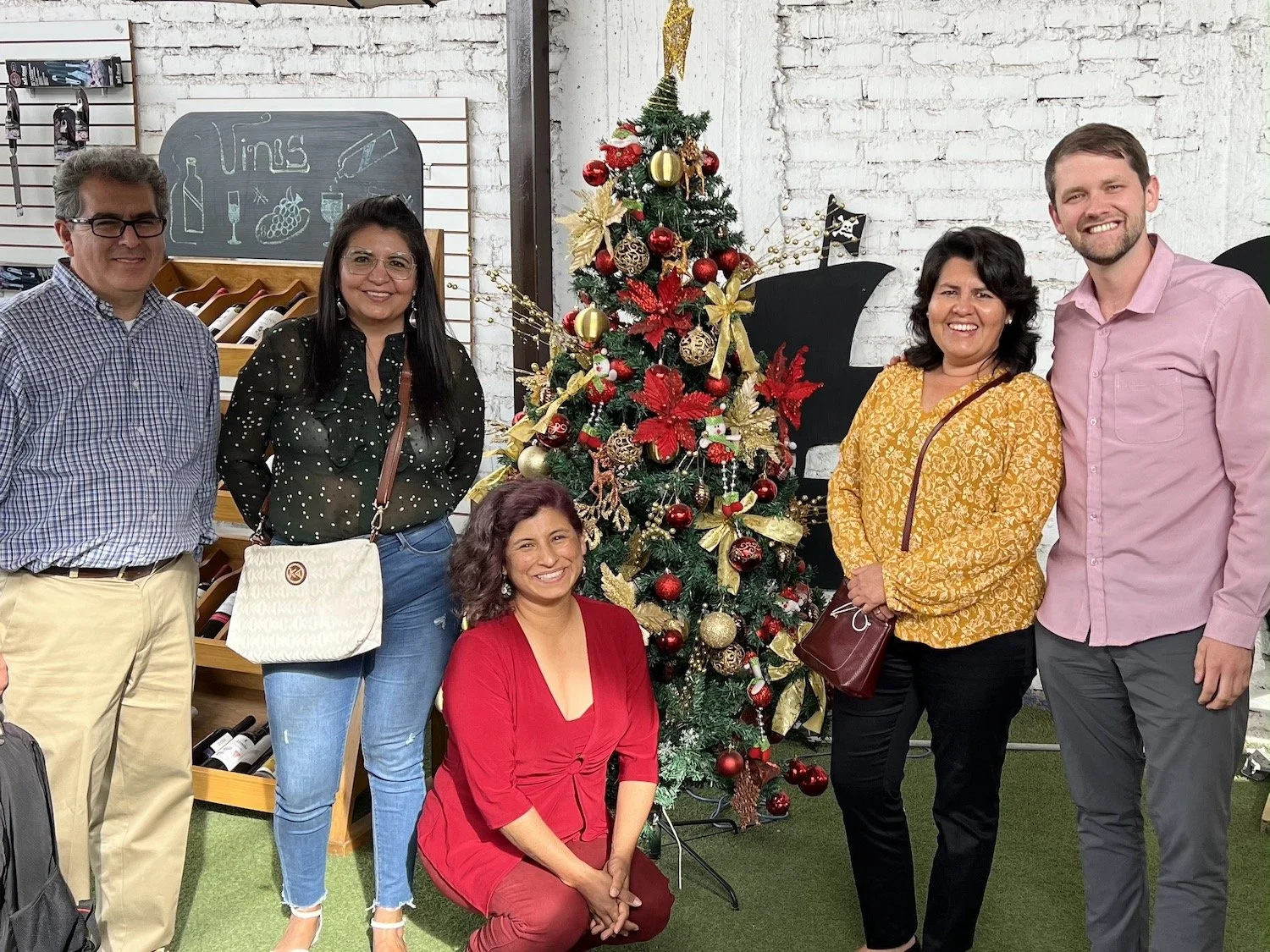A few weeks ago, I left Arequipa, understanding that my time there had come to an end. These past few days, I have tried to be intentional in thinking and evaluating my time in that beautiful city. I came back to the list of objectives I had written some months before when I accepted the Daggetts’ invitation to join their team and spend a somewhat extended stay working closely with them. I knew the language (mostly), and even when the culture was still very foreign to me, I already knew the place and some people; I thought God could use my presence there and prayed for it. I will not lie to you; reading that list almost one year later, I didn't have the feelings with which the seventy-two came to Jesus after being sent (Luke 10:17), feelings of marvel for what they had done in His name. I did not see my goals surpassing my expectations, and surely it was better this way, so I would not find many reasons to feel proud of myself. But the last point of the list I had written caught my attention, definitely fulfilled above all my expectations: “To grow and let God work in my life through others.” Let me tell you about it.
Reading: Opening hearts and healing wounds
Although our main mission is to train our teachers, through modeling, in metacognitive reading strategies, reaching the classrooms and feeling the affection of our students, children between the ages of seven and eleven, expressed in hugs, smiles is an ineffable sensation. Reading not only opens doors, it opens hearts and heals wounds. Our noble activity is like the stem of a rose that is not only addressed to our teachers but also to our students, who day by day we see in them a greater attachment to reading. For this, not only motivation has been enough, but also a set of significant strategies that allowed reading to be efficient and meaningful.
Recommendation: Jonathan Sacks's The Dignity of Difference
A few years ago, I listened to an interview that Krista Tippett did with Rabbi Sacks for On Being. Sacks’s questions about “making room for difference” and “seeing the image of God in one who is not our image” became guiding questions for my life in Peru, for thinking about dignity and difference in a world where George Floyd is murdered by police while the world watches, for the process of learning through travel. I began a doctorate program a few years ago and I chose to research the impact of studying abroad in Arequipa (with Harding University Latin America) in terms of intercultural spiritual formation. That is, spiritual formation in God’s diverse world is intercultural—and travel heightens the opportunity for that. It was only after I finished my research, writing the dissertation, and defending it that I had time to actually read the whole book.
We. Are. Thankful. (June 2022 Issue Header and Pictures)
We. Are. Thankful. The kids have been in school since March, and are loving it. Kinney wasn’t speaking much Spanish in March when he started, and he chose not to speak Spanish for his first two months. He would come home from school and tell us that everyone spoke Spanish that day but that he had spoken in English. It’s an amazing process. After two months of school, he came home one day and told us he spoke Spanish that day. And since then we’ve gotten to hear him switch into Spanish when he plays with friends, speaks with neighbors, worships with the church. Adileen has been learning to read in both languages. What a gift language is, and the chance to use it as we learn about others in God’s diverse world makes language sacramental. Through my kids I’m challenged to continue learning how to speak goodness into the lives and spaces around me.
Evolving Libraries
One piece of the Living Libraries puzzle that we’ve been thinking deeply about is what happens when we leave. We’ve done our best to structure Living Libraries so that we’re giving teachers and schools a process: comprehension strategies, skills that are put in place that will change reading education but also math, science, history. It’s our aim at sustainability. We want to move on to more schools and teachers and kids, but it’s essential that what we have taught continues to teach and a be a part of a child’s education.
A Timely FAQ
We were recently asked a number of questions, to give context for the new Central Church website, so I decided to share it here. Of course some of you have been paying attention to the Team Arequipa story way before we were in the picture. But we’re coming up on having lived here 8 years and it was instructive to me to think about how we ended here, what the mission is, how faith has evolved, and how special it is to see God at work.
HULA 2022 - All In
We love working with students. There’s something so special about the liminal space of studying abroad: a voluntary displacement for the sake of formation. Students choose disorientation. They choose to leave the US and ask big questions about God and the world as they spend a semester looking through eyes and living through the experience of another place, people, and culture. And of course they get to travel to some pretty amazing places as well.
Resurrection is all around us ☀️🏔
¡Hola from Arequipa! We’re well into 2022 and less than two weeks away from our next Harding University Latin America group arriving. There are 30 students coming along with Jonathan Roberts (who directs Harding’s financial aid) and our dear friends Debora and Sira (with whom we spent a significant amount of time in the 2020 lockdown).
An Advent Miracle: He who has ears to hear...
Toward Shalom - CUDA Microfinance
Paty is a servant leader in our small house church network. She hosts one of the churches, leads our church in the service of loving our neighbor, and has worked full-time with CUDA for the last ten years. Six years after sunsetting our microlending program, the pandemic gave us an opportunity to resurrect it, paying special attention to Arequipa’s marginalized populations—including current and former sex workers and an abused minority community.

